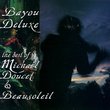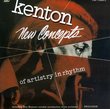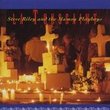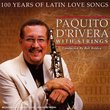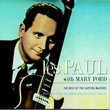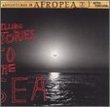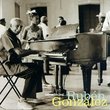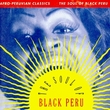| All Artists: Matthew Shipp Title: One Members Wishing: 0 Total Copies: 0 Label: Thirsty Ear Original Release Date: 1/1/2006 Re-Release Date: 1/31/2006 Genres: Jazz, Pop Style: Avant Garde & Free Jazz Number of Discs: 1 SwapaCD Credits: 1 UPC: 700435716629 |
Search - Matthew Shipp :: One
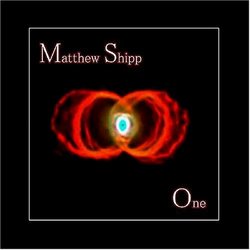 | Matthew Shipp One Genres: Jazz, Pop
Matthew Shipp says so much without ever using a word. In "One", his latest re l e a s e — for Thirsty Ear's Blues Series, Shipp sends up a powerful entourage of solo acoustic — tracks. Where previous releases have been on a ... more » |
Larger Image |
CD DetailsSynopsis
Product Description Matthew Shipp says so much without ever using a word. In "One", his latest re l e a s e for Thirsty Ear's Blues Series, Shipp sends up a powerful entourage of solo acoustic tracks. Where previous releases have been on a voyage through electronica and hip- hop, this album comes full circle and presents a pure and intimate taste of what Matthew Shipp Is all about. Him and his weapon, the piano. "Even though I've been involved with many types of projects, at the end of the day I am a pianist and I have a need to express my poetic imagination in a solo session on the instrument." - Matthew Shipp There are no distractions or fillers here. From Shipp's soul, to his hand's, straight to your ear's, this re c o rd pulls you into his roots. Close your eyes and feel as if you are "One" with Matthew's fingers, as they push you up and down the explosive arsenal that exists in his keys. Similarly Requested CDs
|
CD ReviewsSolo Shipp! David M. Madden | salt lake, utah United States | 11/10/2006 (4 out of 5 stars) "At the 1998 Jazz awards, a fight broke out between Jazz Journalists Association president Howard Mandel and critic Stanley Crouch. Of all people, seemingly mild-mannered Matthew Shipp stepped in and called Crouch an "Uncle Tom" and a "loser" before security separated the two. As uncharacteristic as this might seem, Matthew Shipp is full of these types of personal and musical surprises -- and judging from One, he's just getting warmed up.
Shipp isn't the sort of artist who typically feels caged -- unless you add a "John" to the beginning of that phrase. Sans effects, electronics or collaborators, he opts for stark acoustic piano performances on One's twelve pieces. The results channel the souls of a variety of infamous performers and piano works from the past hundred years. For "Gamma Ray", Shipp plunks down his staccato theme and "wrong" notes with a Monk-style clumsy-genius attack, and riffs in-between with Oscar Peterson's speed and grace. In "The Encounter", he wanders around a murky pedal-down mire of pan-diatonics, nodding to Henry Cowell and George Winston, while "IEOU" marches full steam ahead in the lower register with all of Cecil Taylor's breakneck explosiveness. Closer "Module" opens with diatonic planing figures, echoing Chick Corea -- or perhaps Debussy. After the tense, rumbling climactic release, he fades out with the same gesture, then leaves the keyboard as abruptly as he arrived. Though One wanders freely across the musical map, Shipp deliberately limits his palette, adding the descriptive "lovely" and the highly cherished "listenable" alongside "experimental". Extended techniques like tossing bouncing balls inside the sound board and fitting piano hammers with Malaysian coral make for intriguing sonic diversions, Shipp distinguishes himself here by only exploring only the avenues afforded by the piano's 88 keys -- and finding spectacular harmonic, contrapuntal and polyrhythmic textures within them. Surprisingly, there are very few spots where forty minutes of musical same-ness drags. Shipp keeps repetition to a minimum, emphasizing dynamic ebb and flow and forward motion while still expressing his "poetic" imagination. One is an impressive addition to Shipp's canon. It belongs at the very top of his resume, alongside The Sorcerer Sessions, his work with DJ Spooky (Optometry) and his part-time gig as the Jazz Awards' Brawler in Residence. " |

 Track Listings (11) - Disc #1
Track Listings (11) - Disc #1